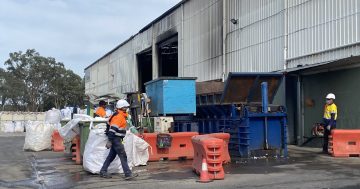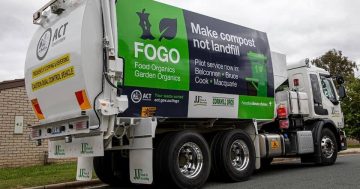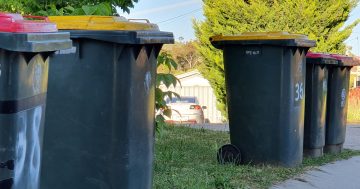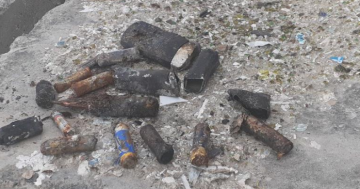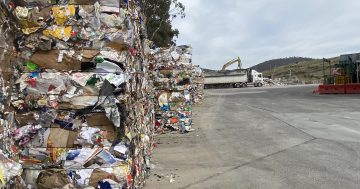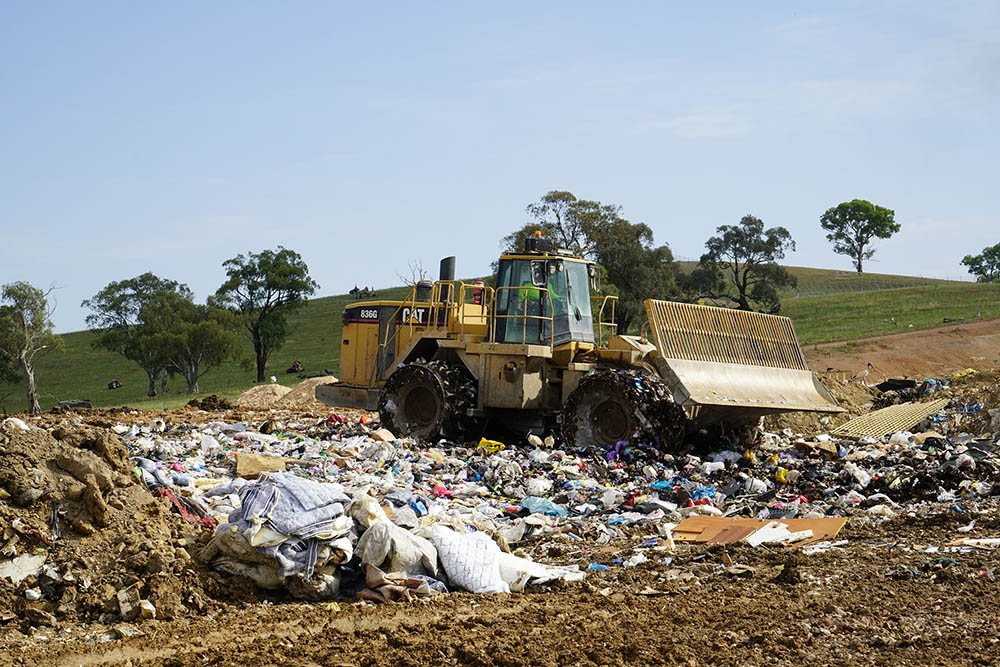
New waste reduction laws will first focus on diverting business food waste away from Canberra’s landfill. Photo: ACT City Services.
Food businesses such as supermarkets, cafes and restaurants will soon have to follow new waste processing requirements as part of circular economy legislation which has passed the Assembly.
The legislation will support a new legal framework which gives the ACT Government powers to introduce new waste reduction requirements, particularly for business.
“The first stage of the new waste processing requirements will be to set a level playing field for businesses to ensure they’re all recycling their co-mingled recycling, and making sure it goes on to be reused and that we value that product as a resource,” Transport and City Services Minister Chris Steel said.
“These laws will support the establishment of a circular economy in the ACT, where waste is reduced and where the reuse and recovery of resources is maximised.”
It’s estimated about 70 per cent of Canberra businesses already have co-mingled recycling, however about 9500 tonnes of food organic waste is going into landfill from food businesses each year.
Regulation to require the establishment of food waste reduction plans for businesses are under consultation to help them understand how much food waste they have, how to reduce it and ensure any food waste is recycled or composted.
“When [food waste goes to landfill] it contributes to climate change through production of methane, so we want to try and divert as much of that material as possible away from landfill,” Mr Steel said.
“A circular approach involves reducing food waste as much as possible in the first place, and then making sure that valuable food waste goes on to be reused, recycled or composted, and even used in growing more food.”
It also includes a regulatory impact statement (RIS) which found there would be “substantial benefits” from the new food waste recycling requirement for the environment, emissions reduction, the waste management industry and food rescue organisations.
It’s expected this will also extend the lifespan of the ACT’s landfill.
“These laws are just part of the ACT Government’s 53 actions that we have identified to build a circular economy in Canberra, outlined in our Circular Economy Strategy and Action Plan,” Mr Steel said.
Similar laws were already in place for single-use plastic, but the legislation recognises non-plastic and non-single-use plastic products can also be harmful to the environment and human health.
This legislation allows the Government’s powers to extend beyond banning single-use plastic to other products.
“As part of this legislation we’re also incorporating the existing regulations we’ve made under the Plastic Reduction Act to not just look at single-use plastics, but also extending that to other problematic products, including products that might have a toxic chemical component like PFAS, and making sure that non-recyclable products are replaced by recyclable products in the supply chain,” Mr Steel said.
When problematic or toxic non-plastic products are identified, the Government will invite public submissions before making any decision to ban them.
Penalties of up to $40,000 for non-compliant businesses are provided in the legislation, however Mr Steel said education would be the first approach in implementing the new requirements around food waste recycling.
“We know that most businesses are already doing the right thing, we know cafes and restaurants are already turning their food waste and coffee grounds into valuable compost and other products,” he said.
“This is about making sure all businesses are doing the right thing by the environment and by climate change.”













